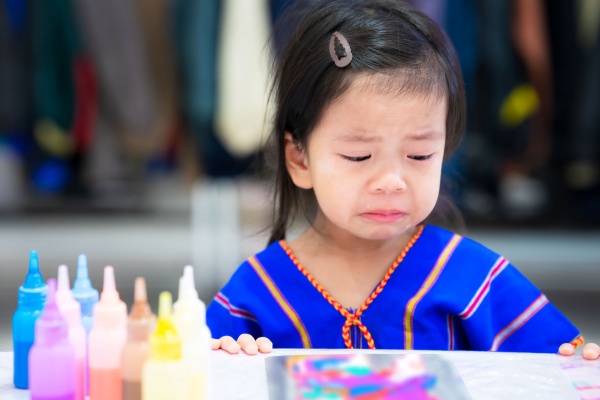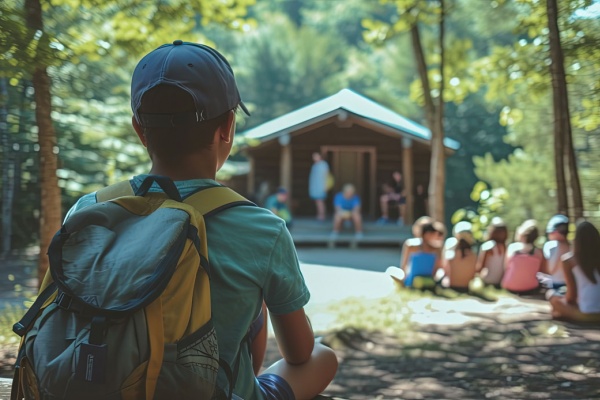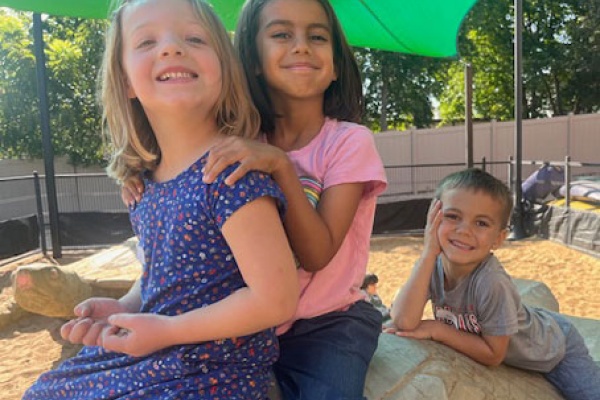

7 Signs Your Kids Are Ready For Their First Sleepaway Camp
It’s time to decide whether to send your kids to sleepaway camp, but how do you know that's the right thing to do? How can you tell whether your kids are ready for their first extended stay away from home? You can’t know simply by how old they are.
“There are some six-and seven-year-olds who march eagerly off to camp without a problem,” says Bob Ditter, a camp consultant who’s worked with sleepaway camps for more than four decades, “while some eleven-year-olds cower with a fear of becoming homesick.”
Here are 7 important signs that experts say should inform your decision:
They express an interest in going to sleepaway camp
The first and most obvious indicator that your kids might be ready for this important milestone in their young lives is that they express an interest in it. “If they start to show interest in camp or ask for permission to go,” says Kaitlin Kirby of Tiny Beans, a parenting site, “it’s a strong sign that they’re ready to pack their bags and head off for a week (or more!) of fun.”
They’ve had one or more successful sleepovers with peers
It’s a good sign if your kids express an interest in going to sleepaway camp, but how have their past experiences sleeping away from home been? Have they had sleepovers with classmates or friends that went off without a hitch? You may want to hold off on sleepaway camp if the opposite has been the case. Jess Michaels of the American Camp Association advises parents to use past sleepovers as a diagnostic tool: “Has your child been successful when away from home? If your child felt panic-stricken and needed to come home in the middle of the night, sleepaway camp might have to wait.”
They understand what sleepaway camp entails
Sleepaway camp involves much more than being away from your parents for a couple of days, a week, or longer. It also requires kids to be flexible and navigate new and unexpected situations, be able and willing to follow instructions from caregivers other than parents and teachers, and to exhibit independence and personal initiative. Consider this before making any final decisions. “Before you can feel confident that your child is ready for camp,” Kirby says, “you’ll want to be sure they know exactly what they’re getting into.”
They’re flexible and can navigate new and unexpected situations
Erica Patino of Understood.org, a nonprofit organization that educates people about learning and thinking differences, suggests that parents ask themselves how flexible their kids are: “Is switching gears hard for your child? If it’s time to put away an art project and move on to a new activity, will your child get upset or resist?” Most sleepaway camps have jam-packed schedules, so it’s important that your kids can switch from one activity to the next without feeling overwhelmed and stressed. More generally, Kirby says, your kids should be able to navigate new and unexpected situations: “Whether it’s participating in a new music or art class, an activity like karate or archery, or simply strutting into new surroundings, your child can likely handle camp if they are confident in these scenarios.”
They follow instructions from caregivers other than parents and teachers
Your kids should also be able and willing to follow instructions from authority figures other than you and their regular classroom teachers since camp life is full of rules and routines. Patino says that parents should ask themselves questions such as these: “Can your child remember all the steps for tasks like clearing a table in the dining hall? Will your child listen and follow through if the counselor gives instructions?” If the answer is yes, your kids could be ready for sleepaway camp.
They exhibit independence and personal initiative
Sleepaway camp also requires kids to exhibit independence and personal initiative. They should be able to solve all kinds of problems, large and small, on their own, know when it’s better to ask counselors for help, and be able to make new friends with kids they’ve never met before. On a very practical level, they should be able to take responsibility for personal hygiene and handle a daily routine. As Allie Simon, a camp consultant who’s developed programs for several sleepaway camps, puts it, “Make sure your child knows how to brush their teeth, take a shower and pick out outfits.”
You’re ready to let them go
It’s a great sign if your kids are bursting at the seams to go to their first sleepaway camp, but are you truly ready for it? As Kirby says, “Your child may be jumping for joy at the thought of spending a week or more with friends old and new, but ultimately, you as the parent have to be ready to let them go.”





















